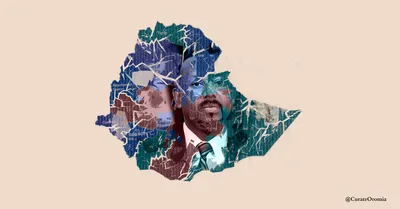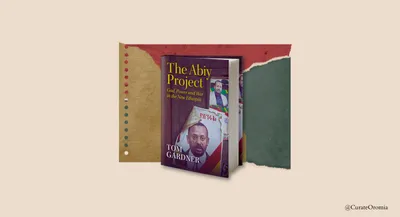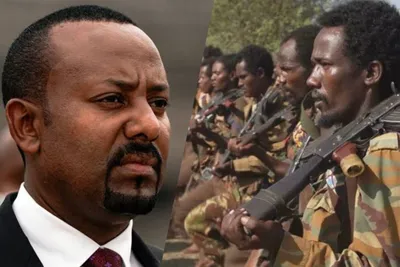Jaal Marro’s journey to Tanzania: an interview with his advisor
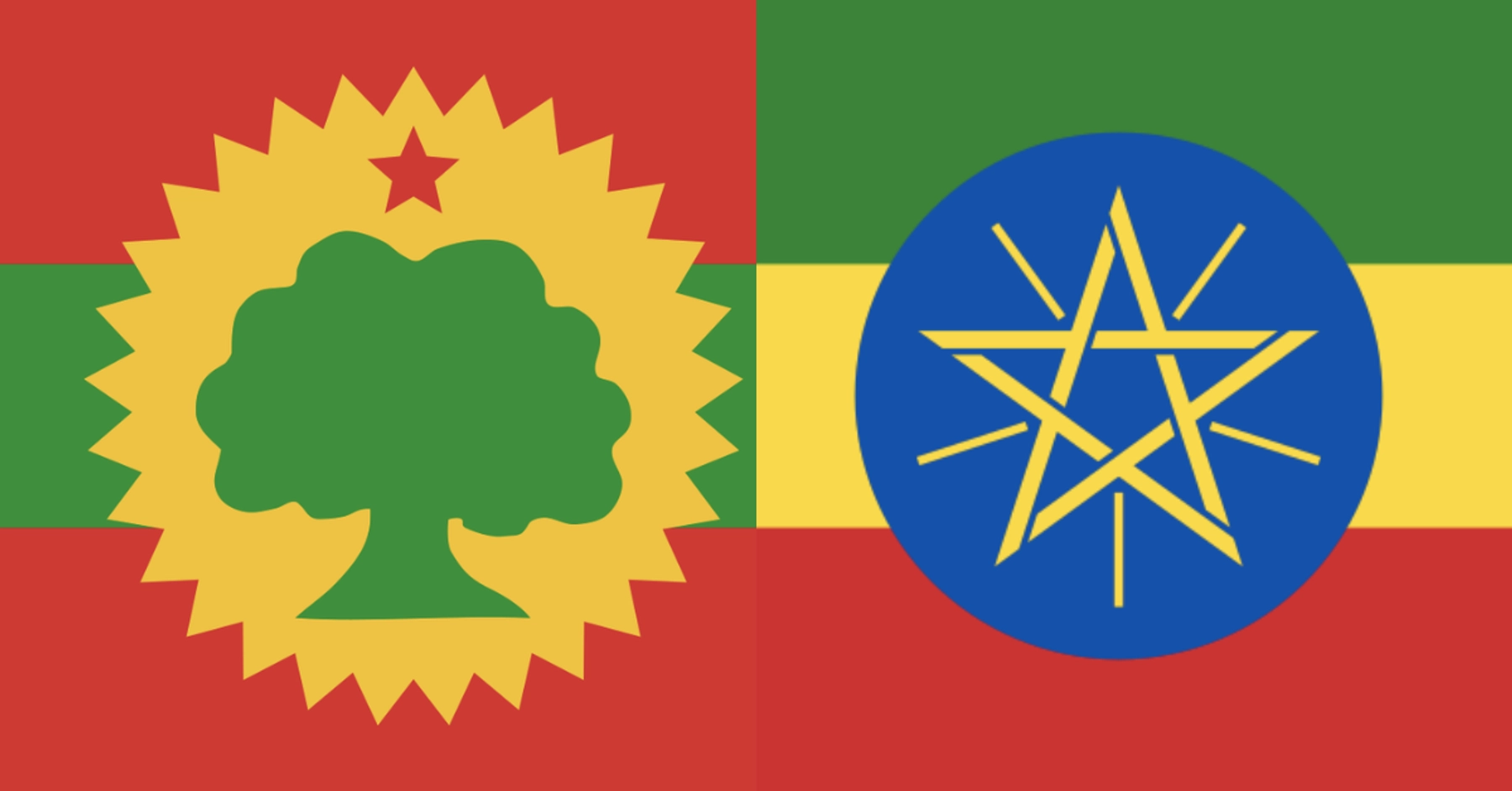
Editor’s Note: There have been two rounds of peace talks between the Ethiopian government and the Oromo Liberation Army (OLA) aimed at ending the five-year war in Oromia. The first round was held in Zanzibar in April 2023, and the second took place in Dar es Salaam in November 2023.
The BBC has interviewed Jirenya Gudeta, advisor to the OLA’s commander-in-chief, Kumsa Diriba, to discuss the specifics of the peace talks, as follows:
BBC: Senior Oromo Liberation Army (OLA) leaders, including Kumsa Diriba, took part in the second round of peace talks in Dar es Salaam, Tanzania. What was the general atmosphere in the room when you first met with government officials?
Mr. Jirenya: When two warring parties meet for a negotiation, their hands may not touch, but their eyes are still in conflict. It would have been incredibly difficult to communicate with the government delegates without the help of the international stakeholders that mediated the talks and norms and regulations put in place. But, since we were there under the auspices of international law, we sat down and negotiated. In addition, the host country had given us a guarantee, so we engaged in a civil manner.
BBC: Did you greet or exchange jokes in the mornings?
Mr. Jirenya: Despite the pain and our mutual skepticism, everyone was engaged in conversation, carefully concealing our true emotions. Since the killing and the destruction we caused on one another were not insignificant, and since we came together to put an end to it, we sat down and discussed.
BBC: Which entity facilitated Kumsa Diriba’s transfer from the battlefield to Dar es Salaam? What level of trust established with the Ethiopian government allowed him to leave through an airspace that is under their control?
Mr. Jirenya: There has never been any trust with the government, but they had signed an agreement with a third party that was facilitating the talks. It was due to this agreement that he was able to leave Ethiopia in a plane operated by the Red Cross.
According to the agreement, government troops were supposed to be at least 70 killometers away from where Jaal Marro had been. The Ethiopian government did not abide by it. So there had been attempts at siege. It was out of respect for the call for the peace talks and support from the third-parties, he came out of there.
BBC: Where did he board the plane?
Mr. Jirenya: A Red Cross helicopter took him from his location to Dambi Dollo, where he boarded a plane. From there he flew to Kenya and then on to Tanzania.
BBC: By the way, did he have a haircut before joining the peace talks?
He was asked, but he refused, saying “this is a symbol of our struggle; it is my beauty and I am proud of it.” He took part in the negotiations and returned in the same hairstyle.

BBC: What was the prevailing sentiment in the second round of peace talks at Dar es Salaam? How was it different from the previous one held in Zanzibar?
Mr. Jirenya: Both were conducted in Tanzania, but the first round in Zanzibar was an opportunity for us to get to know one another. It was a time for us to make our demands clear to the international stakeholders involved in the negotiations. Mutual skepticism and mistrust existed.
In the second round of talks in Dar es Salaam, it was high-ranking military representatives from both parties that met face to face to negotiate. It was Jaal Marro, who had previously been reported killed on several occasions, as well as other OLA leadership that personally attended the peace talks. Even third-party facilitators were doubtful about his attendance. We were also pleased to see him in person, as it was an intensive operation that was conducted to bring him to the talks safely.
BBC: What level of agreement did you reach during the second round of peace talks? What were the key points of the negotiation?
Mr. Jirenya: Several issues were raised, but only two emerged as the most contentious. The first were military and security matters, while the second was political. We said that we resorted to armed conflict precisely because the political question remains unanswered. They, on the other hand, said “there is no political question.” They went on to argue that they came to power through election, by the choice of the Ethiopian people. When we asked “What led us to war then?” they failed to provide a satisfactory answer.
There is a people’s question at the center of this. We argued that with the army and police under their [Prosperity Party’s] total control, they have denied the people the right to determine their own fate. That the war on the people must stop, that the army must not be involved in politics, soldiers and security forces must not be under the control of one party.
It is an organization that controls political power and that decides on political and public affairs. So we asked them to include opposition political parties. We also asked that the electoral board, civil society, and media institutions be free from government interference. They should not be under the control of one party and should not be used to protect their power. We said that only when that is done, can we participate in elections; however, that was not accepted.
It should not be as one senior military leader put it: “In the Derg era the land question was answered, in the TPLF era the identity question was resolved, and now in the Prosperity era the political question has been resolved.” The leader of the military is responsible for the state, not for one party. What he said is unacceptable.
BBC: They command the army that is fighting against you. How can you argue that they can not speak?
Mr Jirenya: The army belongs to the entire country. They have a responsibility to protect other parties as well. We believe that they should not only reflect the views of the ruling party.
Generally, We raised the Oromo people’s demands. Few I can mention, we raised the Wollo issue, we raised the Dire Dawa and Finfinne issues and we raised the issue of Afaan Oromoo becoming a federal language. We also discussed the rights of other nations and nationalities and how we can ensure them in a respectful manner and there was an agreement there. However, the main issue remained military and security issues.
BBC: The Prime Minister recently cautioned against armed struggle as a means to power. He said “Don’t contemplate seizing power through violence. Come and participate in the elections and gain power in a democratic process.” Why are you still engaged in armed struggle?
Mr. Jirenya: Power belongs to the people. But the ruling party protects its power by the gun. This is why they want OLA to disarm. The political demands of our people were not answered and that’s why we took up arms. In the absence of a political answer, we choose the gun.
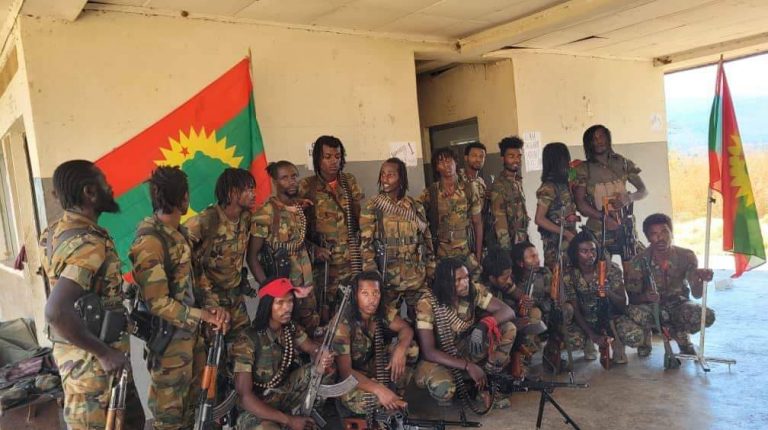
If the demands are not answered, how can we put down arms? If the demands were answered today, the soldiers who took up arms and joined us in the jungles will become guardians of our people’s peace. If it was possible for them to return to their people, and their careers, they would. It is exactly because their demands were not answered that they chose to pick up arms.
BBC: How can the government answer developmental and political demands when it is battling against the OLA? How did they answer the questions you raised?
Mr Jirenya: They accuse OLA of wanting to overthrow the government and disturb the constitutional order. They say they came to power through the ballot box. But honestly how many people elected them freely? No opposition party took part in the election In Oromia. Did they compete and win against their own shadows?
BBC: How can the government answer the political question while battling against you? How can your questions be answered while you are in the jungle?
Mr. Jirenya: Progress hinges on mutual concessions. The government must be willing to address certain issues, and the OLA needs to take a corresponding step in return.
BBC: What kind of concessions do you expect from the government? Was establishing a coalition government part of the discussion? There have also been reports of power sharing. How accurate was that? What specific positions of power did you demand?
Mr. Jirenya: We did not seek individual positions of power. Instead, we asked for a system that works for everyone. Such a system would eliminate the need to resort to violence and coercion. We said that you cannot implement what we agree on alone. Other opposition organizations should be included. Our journey didn’t begin with the goal of achieving power, but to build a robust system. They misunderstood our priority however and instead offered a few individuals positions of power.
BBC: What did they offer you and Marro? Military, Police, National Security leadership?
Mr. Jirenya: Matters of security are for the OLA and the government to sort out. On other political issues, others should be included. Power is not the end game for us. Power should belong to the people. Since power is the end game for them (Prosperity Party), they thought the same of us. What we asked for is a free and just system.
BBC: The government said, “We gave them whatever they asked so they could return to the path of peace and they refused.” Why did you refuse?
Mr. Jirenya: They want to give us power but we kept repeating that power belongs to the people, and not them. We asked for an end to the war so we can build a system that empowers our people, not to take power out of their hands. We kept saying, “Let’s build this system together,” but they wanted to buy us out.
The proposal was to give us a number of positions from federal to local levels. That is worthless to us. We said that this should come from the people. No elitist solution can bring an end to this. People are in the midst of conflict and conflict consumes people. They want to give us power so it goes according to their wishes. Our demand was never personal power.
BBC: The Oromia region, particularly the Wallagga zones, have been severely impacted by security issues. Other zones are suffering similarly. Prime Minister Abiy recently said that they had allocated billions in budget for road construction in Wallagga alone, but due to being in war “we didn’t know what to do.” How can they work for the people when they are battling against you?
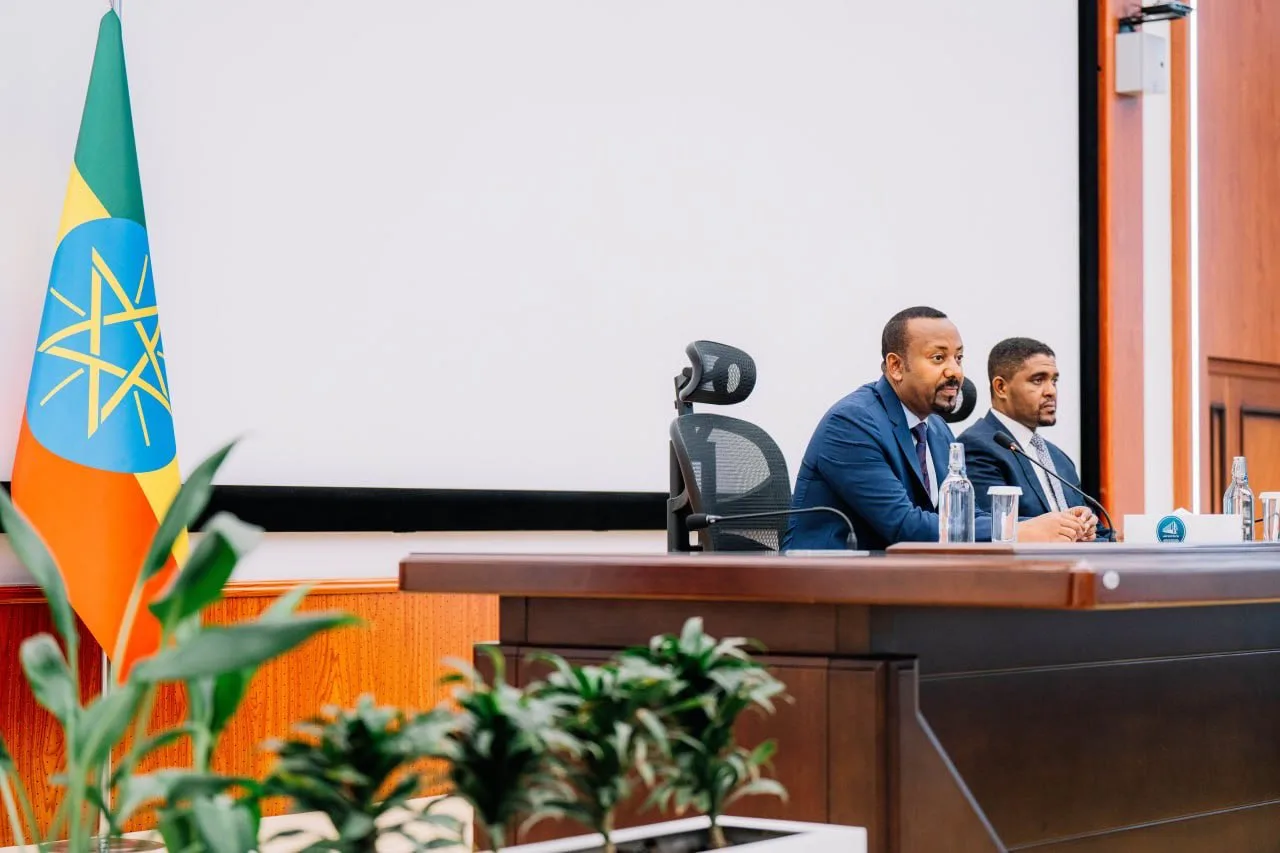
Mr. Jirenya: This government does not even respect human rights, how can it work on development? When Ethiopian government forces are inflicting violence on civilians, how can it work on development? What are the horrors that are being visited upon the people accused of supporting OLA?
According to the law, even an OLA soldier shouldn’t be killed when they are captured in combat. But in Ethiopia, civilians are taken out of prison and shot dead. Respecting people’s rights comes first.
BBC: Today, the Oromo people speak their own language, govern themselves, have complete control over their resources, and profit from development. This is the government’s view. Is your assessment on the contrary?
Mr Jirenya: The Oromo are a big and a great nation. Time and again in Ethiopian politics, it has ousted governments, but has not assumed real power. It played a major role in the overthrow of the Haile Silasie regime but we know who benefited from that during Derg. These people have fought against the Derg as well and they lost power to the TPLF. When the Qeerroo movement overthrew TPLF, power was hijacked and we all know how.
The individuals in charge today are the same ones who have been torturing people. The same ones who admitted to stealing from the people and publicly asked for forgiveness. Has the number of Oromo lives killed in recent years ever been seen in the past century?
A group of people may have organised themselves, gained access to power, and accumulated wealth. But to what extent has this benefited the 60 million Oromo?
BBC: Your tone in the statement you released following the conclusion of the talks conveys a sense of anger. Was there anyone who prematurely walked out of the meeting? What point led to the breakdown of the talks.
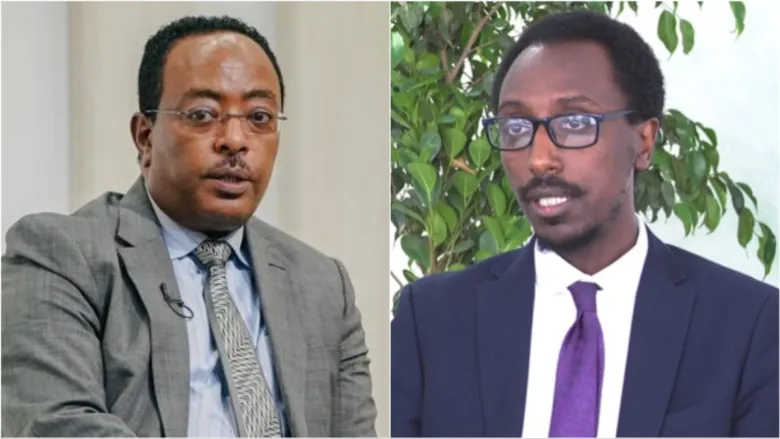
Mr Jirenya: When we were in the middle of discussing how to address the political problem, they became disappointed and left the meeting, and issued statements on Twitter. You’re here to find a peaceful solution, so you’ll need to be patient. We published our statement after they had walked out of the negotiations. It didn’t end on a positive note.
BBC: Since the end of the talks, questions have been raised about Marro’s whereabouts. Did he return to the country the same way he left?
Mr. Jirenya: The Ethiopian government has broken some of its initial promises. Marro and others were flown out by the Red Cross; foreigners went there and brought him. Guarantors from America and Norway, that is. They were also responsible for returning him. The Ethiopian government has signed an agreement with the Red Cross. However, we were told that the government broke its promise and they (Red Cross) were not able to take him back.
They may have had a different plan. On our part, we have returned him to the base using our own means. Let me stop here. When the time comes, we will reveal the details. The government has nothing to say on this matter.
BBC: Is there any hope for a third round of peace talks?
Mr. Jirenya: As the second round of peace talks didn’t go well, there was no communication between us since then. However, if they are committed to finding a solution, we stand ready to re-engage in negotiations.
The Ethiopian government is ready to hold peace talks with the WBO for the last time to resolve the security crisis in the country. They have recently approached us, but we have yet to make substantial progress.
BBC: Thank you, Mr. Jirenya.
Mr. Jirenya: Thank you.
We need your support
We trust you found something of value in this article. If so, we kindly ask you to consider helping Curate Oromia continue its work.
If you believe in the importance of independent voices and honest reporting, we invite you to support our efforts through our GoFundMe campaign.
Every contribution, however small, goes directly to our writers and the expansion of our reach.
Thank you for your support.

